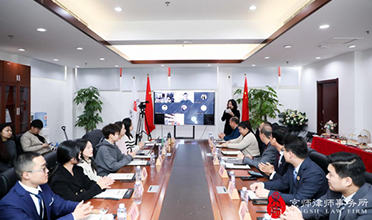

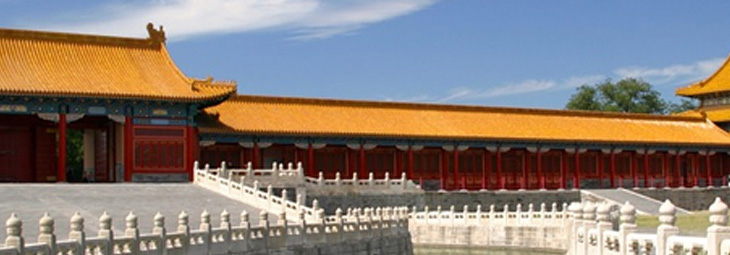
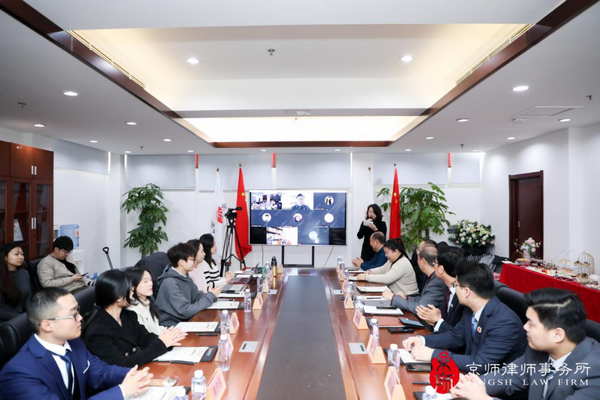
A seminar on the legal protection of cultural heritage is held at the Beijing Jingshi Law Firm in Beijing on Jan 11, 2025. [Photo provided to chinadaily.com.cn]
Dozens of lawyers, law professors, and college students from diverse backgrounds gathered at a seminar on the legal protection of cultural heritage on Saturday at the Beijing Jingshi Law Firm in Beijing.
The event, the first of its kind in China that involved multiple disciplines, was organized to explore cutting-edge topics related to safeguarding cultural heritage through rules and regulations, study foreign legal systems regarding cultural relics protection, and increase public awareness of this important area.
Xu Huajie, a collaborating expert of the UNESCO Chair on Cultural Heritage Law and partner at the Beijing Jingshi Law Firm, who directs its department specializing in cultural heritage protection and repatriation, initiated the seminar.
The discussions centered around the high-profile Zhanggong Patriarch statue case, in which Xu served as lead counsel. This transnational legal battle, which ran from 2015 to 2022, sought to retrieve the millennium-old Buddha statue that was stolen in 1995 from the Puzhao Temple in Yangchun village, in East China's Fujian province. The statue was in the possession of Dutch collector Oscar van Overeem, and the case involved civil litigation in both China and the Netherlands.
The Supreme People's Court recognized this case as one of the top 10 cases of 2022 that promoted the rule of law in the New Era. It has not only inspired legislation on relic protection but also helped to facilitate the establishment of a system for the extraterritorial application of Chinese laws.
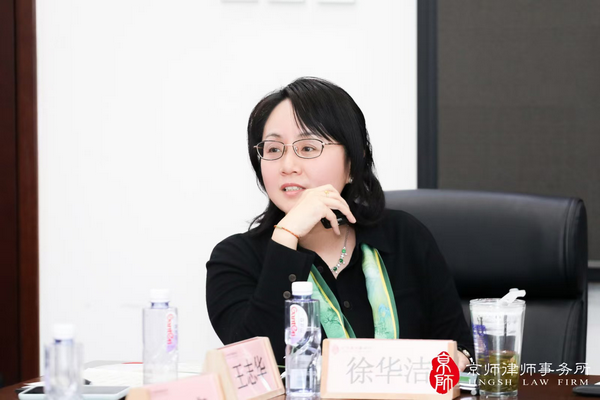
Xu Huajie, a collaborating expert of the UNESCO Chair on Cultural Heritage Law and partner at the Beijing Jingshi Law Firm. [Photo provided to chinadaily.com.cn]
During the seminar, more than 20 students from nine Chinese universities, representing various majors, shared their thoughts on cultural heritage protection.
For instance, Wang Chengyu, a student from the China University of Political Science and Law, reviewed the process of the Zhanggong Patriarch statue case. He said that enforcing China's Cultural Relics Protection Law outside the country remains a challenge.
Wang suggested that China should adopt successful practices from other countries to establish a national prosecution mechanism for cross-border cultural relics recovery, create a dedicated national legal agency for reclaiming stolen and looted artifacts, and select esteemed jurists and legal professionals to assist in recovery efforts.
Liu Xinjie, a student from Beijing Normal University, referenced Article 42 of China's Intangible Cultural Heritage Law, which stipulates criminal liabilities for the infringement of cultural heritage, arguing that intangible cultural heritage should be protected by the Chinese Criminal Law.
In addition to law students, participants from history, archival science, English, and architecture proposed systematic, diverse, and interdisciplinary approaches to protecting cultural heritage.
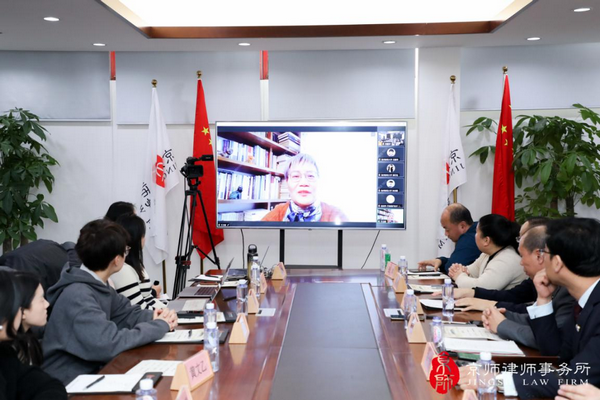
Wang Yunxia, a law professor at the Renmin University of China and holder of the UNESCO Chair on Cultural Heritage Law, participates in the seminar online, on Jan 11, 2025. [Photo provided to chinadaily.com.cn]
Wang Yunxia, a law professor at the Renmin University of China and holder of the UNESCO Chair on Cultural Heritage Law, was invited to comment on the students' presentations. Wang noted that the success of the Zhanggong Patriarch statue case was attributed to parallel litigation in two countries and the effective use of domestic policies and regulations.
She emphasized that to excel in heritage protection, legal professionals must possess not only specialized knowledge in various fields but also a strong sense of social responsibility. She called for further exploration of issues such as safeguarding immovable cultural relics and protecting the rights and interests of local residents in legal practice.
Ren Pengju, an associate law professor at the Guizhou University of Finance and Economics and executive director of the China-ASEAN Legal Education and Research Center, stated that cultural heritage protection requires collaborative efforts across multiple disciplines.
He advised college students aspiring to work in heritage protection to seek internships with UNESCO and argued that more efforts, such as organizing exhibitions and forums and drafting international initiatives, should be made to raise awareness of relic protection and empower the cause of repatriating lost cultural treasures.
In her concluding remarks, Xu expressed a commitment to furthering professional research and enhancing the influence of legal protection of cultural heritage, aiming to contribute to national heritage protection through legal means.
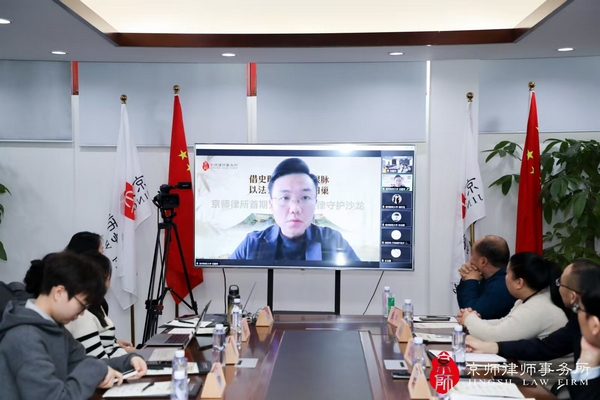
Ren Pengju, an associate law professor at the Guizhou University of Finance and Economics and executive director of the China-ASEAN Legal Education and Research Center, participates in the seminar online, on Jan 11, 2025. [Photo provided to chinadaily.com.cn]